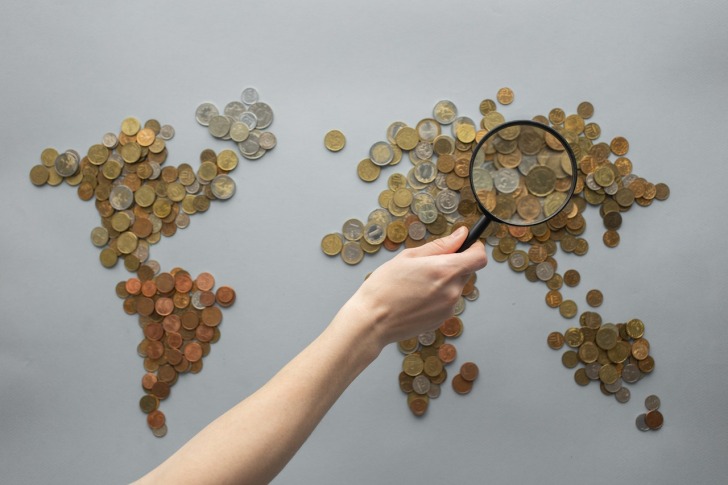These tips will tell you what mistakes not to make and how to travel without spending all of your savings on a vacation.
Travel is an expense item for which many people save money, and if we’re talking about students, whose budgets are always limited, the issue becomes more complicated.
Often trips turn out to be so overhead that they discourage any desire to go anywhere.
However, not every trip will come out expensive.
Here’s what you can do before you hit the road, and what you should think about when you get to your destination to save money.
Here are the secrets of experienced student travelers who have been able to save money on writing do my essay online services.
Contents
- 1. Off-Season Travels
- 2. Choose Flights on Weekdays and at Night
- 3. Set up a Travel-Friendly Bank Account
- 4. Take Advantage of Cashback
- 5. Rent From Locals If Hotel Prices Are Too High
- 6. Rent Your Home While You Travel
- 7. Book in Advance
- 8. Free Admission
- 9. Don’t Use a Cab Service
- 10. Use a Bargain Finder Service
- 11. Make Picnics by Buying Food at the Supermarket
- 12. Eat in Cafes That Locals Go To
- 13. Buy a Local SIM Card
1. Off-Season Travels
Of course, accommodation, excursions, and even food cost a lot more if you travel in the peak season or during the holidays.
In most destinations, the weather remains pleasant in the fall, and some locations boast good weather conditions in the spring as well.
A nice bonus will be the absence of crowds of tourists, discounts on accommodation and various comprehensive offers.
2. Choose Flights on Weekdays and at Night
As a general rule, flights on weekdays and at inconvenient times are the cheapest.
Yes, it can cause some discomfort in terms of sleep and force you to take a mid-week vacation, but working two days and leaving on a trip isn’t such a bad idea, is it?
3. Set up a Travel-Friendly Bank Account
You probably don’t want to travel with cash or look for money changers in an unfamiliar city.
You need a bank account that gives you unlimited ATM withdrawals abroad and no transaction fees.
Look for information on this topic on the web in advance and choose the most advantageous option.
4. Take Advantage of Cashback
If you travel a lot, set up cashback or other travel spending bonuses on your card or join the rewards program that seems best to you to spend less actual money on your next trip.

5. Rent From Locals If Hotel Prices Are Too High
Often apartment rental services offer more attractive rates than hotels (especially if there aren’t too many in your destination and there’s little competition).
Yes, it often requires researching the area you are visiting and carefully reading the reviews, but sometimes the savings are significant.
6. Rent Your Home While You Travel
If you don’t leave your children and other family members at home, consider renting out your place to help offset some of your costs.
And if you have pets that need care, don’t hire staff-use a service that offers people to live in their owners’ homes in exchange for taking care of their pets, or post an ad about it in the appropriate communities.
Keep in mind that some services offer a home exchange service, which can be quite an exciting adventure, too.
If you don’t trust strangers, suggest an idea to a friend who lives in another region or another country.
7. Book in Advance
It sounds trivial, but if you know for sure that you want to go to a festival on certain dates or get a vacation in a specific time frame, book hotels many months in advance (but before doing so, still check how much the offered prices differ from the average).
The same goes for plane and train tickets.
8. Free Admission
Many museums, park complexes, and other attractions have days when admission is free for all.
This can greatly reduce the cost if the cost of visiting such a place seems serious to you.
Remember that you will not be the only tourist who wants to take advantage of this opportunity, and come early.
Also, go inside churches more often, since most are free to enter and you’ll find priceless works of art inside.
9. Don’t Use a Cab Service
Often cabs in a foreign country can take up half (if not all) of your daily budget.
It’s best to familiarize yourself with public transportation schedules in advance and use them if cabs are expensive.
This applies primarily to the way from and to the airport.
In most cities transportation will get you to that point without having to call a cab – just leave more time for the road.
If you plan to use public transportation for several days in a row, consider buying a bus pass.
10. Use a Bargain Finder Service
If your trip involves renting a car, don’t accept the first offer you see, check with a bargain finder that will show you the available rates.
Then try to reserve a car and see if the offer is still good.
Sometimes they might give you a discount if you show them the same offer at a lower price.

11. Make Picnics by Buying Food at the Supermarket
Of course, gastronomic experiences are an important part of the trip, but you don’t always have to go to restaurants for them.
You’ll find plenty of local produce in supermarkets, too.
Even if you don’t leave your country, you’re sure to find regional products on the shelves, whether it’s ice cream, cheese, or cold drinks.
Buying fresh food for your picnic at the supermarket will save you money to go to a good restaurant another night.
12. Eat in Cafes That Locals Go To
Tourist establishments can be crowded with tourists and have high prices.
But once you get away from the main streets, you’ll find better (and possibly more interesting) deals.
Explore reviews and menus and go to places where locals go.
Street market kitchens aren’t a bad idea if there’s a line in front of them.
It’s better to go to expensive places at lunchtime when there are fewer customers, and the business lunch menu may be available on weekdays.
It will help to try something exquisite for less money.
In the evening, go to a more democratic place or cook dinner yourself if you rent an apartment.
13. Buy a Local SIM Card
They’re usually not that expensive, but they allow you to avoid buying an extra coffee every time you want to use Wi-Fi at a local cafe.
If you don’t leave your country, make sure your carrier serves the region you plan to vacation in and check to see if free roaming is available.











